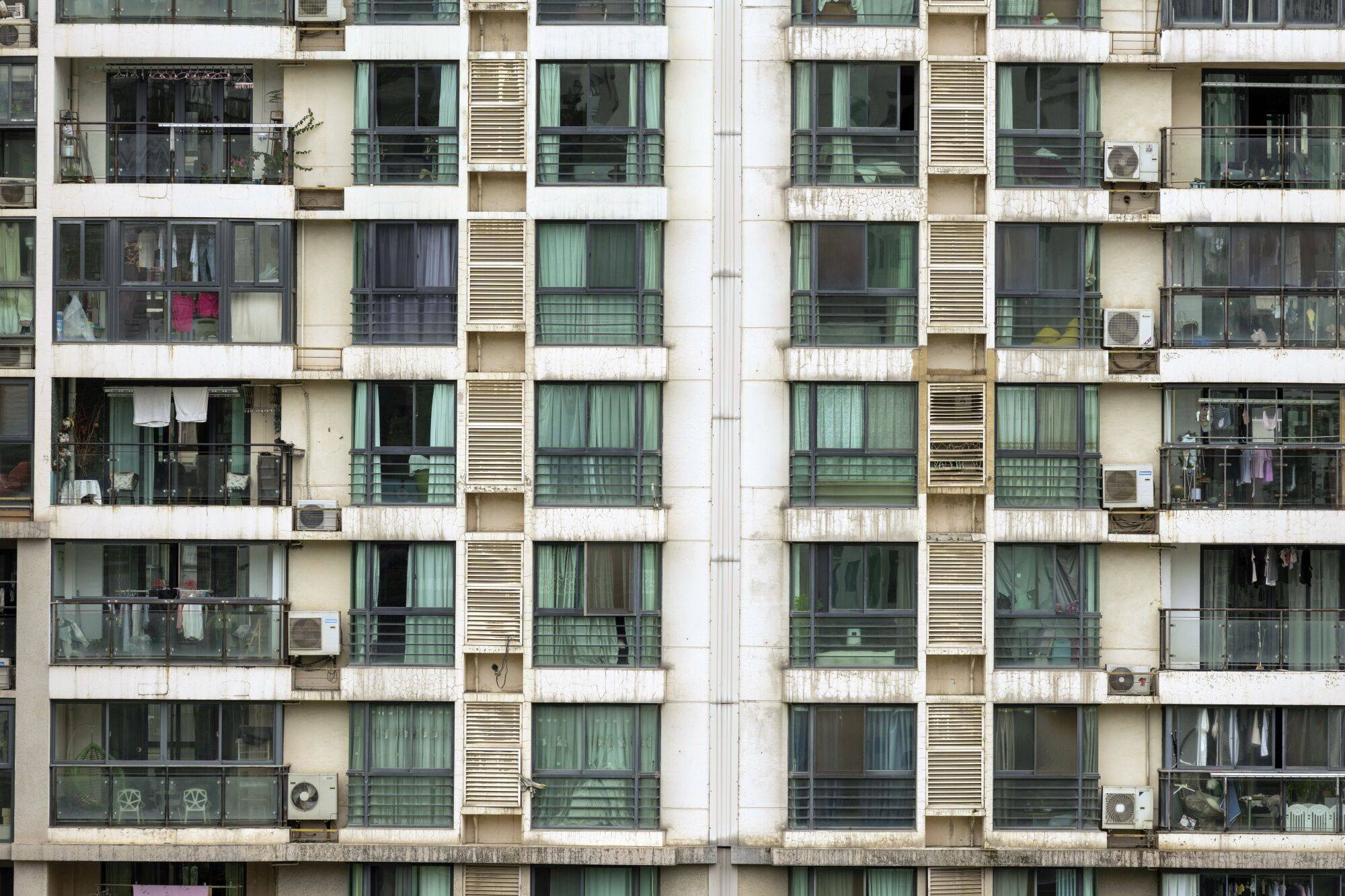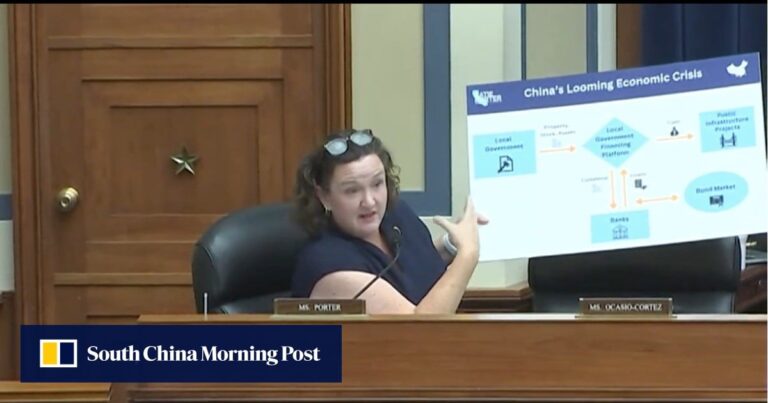Ratings agencies S&P Global and Moody’s came under fire at a U.S. congressional hearing on Wednesday for failing to reflect the risk of a “multitrillion-dollar time bomb” that China’s local government financing methods pose to global financial markets.
The companies borrow money on behalf of states and municipalities to pay for roads, ports and other infrastructure projects, using leases on land controlled by government authorities as collateral, Porter said.
This is a risky proposition given that China’s property prices are in a steep decline, she added.

“A series of long-term city leases expiring over the next five years will create an oversupply and reduce lease values,” he said. “That will cause the bond market to churn.”
“If the Chinese economy collapses, the impact will ripple around the world, just as it did when our housing market, propped up by bad debt, collapsed.”
Additionally, new home sales by the nation’s top 100 developers fell 33.6% in May from a year earlier.
“Congress can break up the S&P-Moody’s duopoly and force American investors to conduct their own due diligence and not outsource due diligence to rating agencies and rating companies,” Kissel testified.
After praising Porter’s “deep insight into the current state of the Chinese economy,” Bethel said: “I think we should recognise that there is a time bomb because a lot of these bonds are being sold globally and overseas.”
Global investment manager Pimco estimated last year that China’s LGFV debt had quadrupled to 55 trillion yuan. [US$7.6 trillion] It is expected to increase from 13.5 trillion yuan in 2012 to 13.5 trillion yuan in 2022.
China’s real estate data is dismal despite wide-ranging measures by the Beijing government to address problems in the country’s struggling property sector.
This includes removing the floor on mortgage interest rates nationwide and setting aside funds for local governments and state-owned enterprises to help them deal with excess housing inventory.
The firm said homebuyer confidence remains weak and it is concerned that new market stimulus measures, especially in lower-income cities, will not sufficiently revive demand.
Renyuan Zhang of S&P Global (China) Ratings said China’s property sales are expected to fall 15% year-on-year in the second half of this year, a downward revision from a forecast of a 5% decline at the end of 2023.

